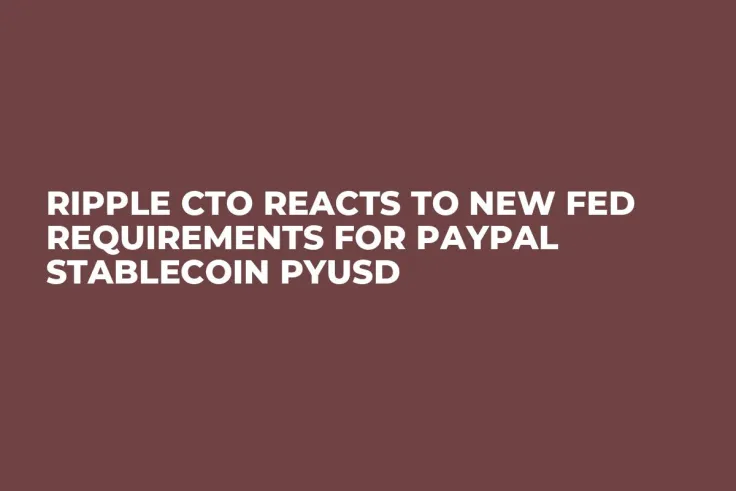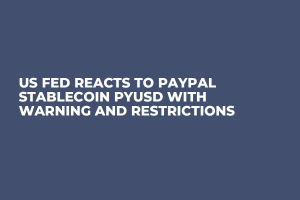
In a surprising turn of events, David Schwartz, the distinguished chief technology officer of Ripple, a prominent blockchain entity, has offered his take on the recent escalation of regulatory scrutiny within the United States crypto landscape. This development follows a decisive move by the U.S. Federal Reserve to amplify its supervisory measures, particularly directed at financial institutions.
Under a freshly introduced program, the Federal Reserve has mandated that state-affiliated banks must secure a written supervisory nonobjection before participating in any form of transaction involving dollar-linked tokens, which are designed to facilitate payment processes. One such token, PayPal's newly unveiled PYUSD stablecoin, falls within this category.
The banks are now tasked with exhibiting their competence in detecting, gauging and managing various risks, spanning from potential money laundering concerns to vulnerabilities in security frameworks.
Authoritative puns
In response to the news, David Schwartz took to Twitter with a cryptic remark, suggesting the emergence of a new contender in the field. Following this, Schwartz was asked about PayPal's standing in light of recent regulatory developments. In a response tinged with uncertainty, he indicated that he could not confirm whether the Federal Reserve had been a factor in PayPal's deliberations. Schwartz's response implied that the extent of the Fed's involvement might not have been fully taken into account by the payment giant.
So did they.
— David "JoelKatz" Schwartz (@JoelKatz) August 10, 2023
Addressing a reader's assertion that PayPal's ability to navigate regulatory challenges might have been influenced by its political affiliations, Schwartz maintained a measured stance. He noted that assumptions might have been made in this regard, suggesting that the notion of political connections aiding in seamless regulatory navigation could be a possibility.

 Dan Burgin
Dan Burgin Vladislav Sopov
Vladislav Sopov